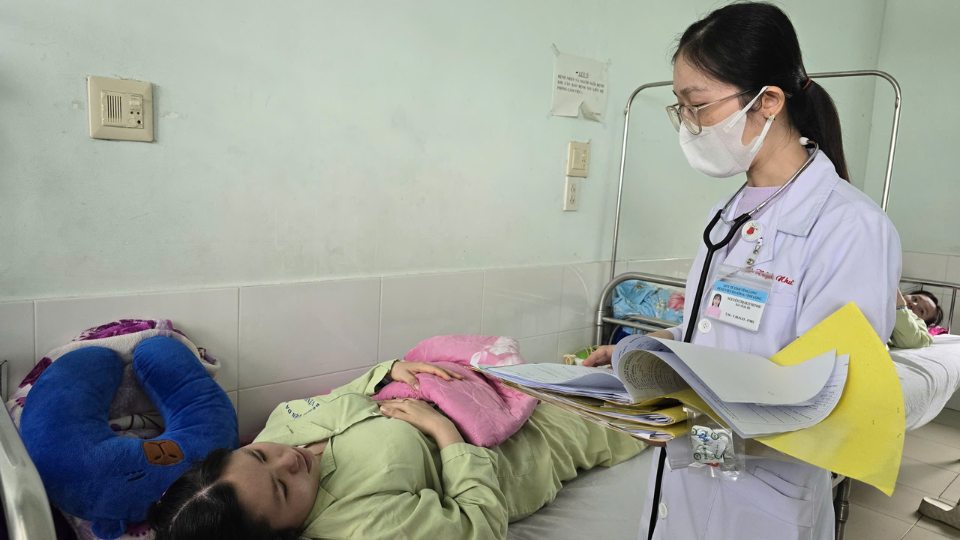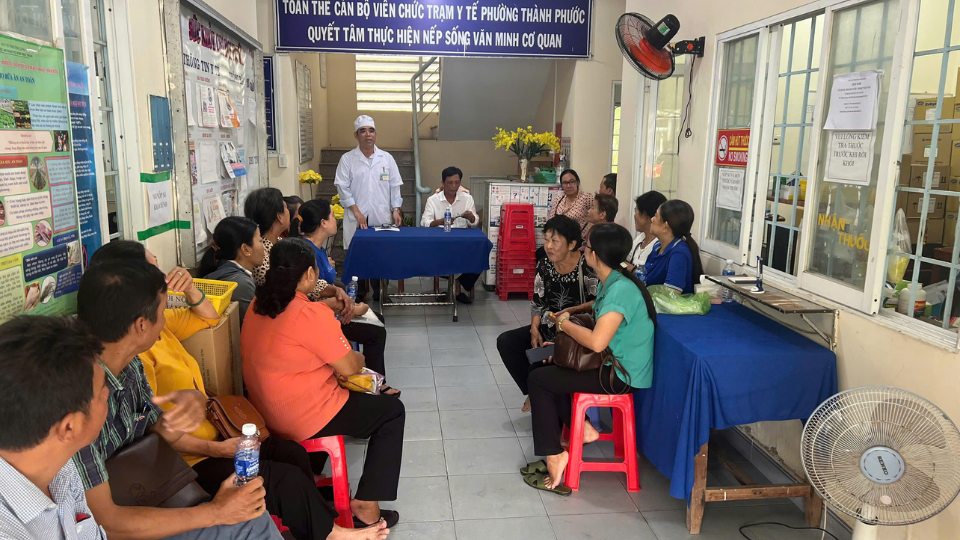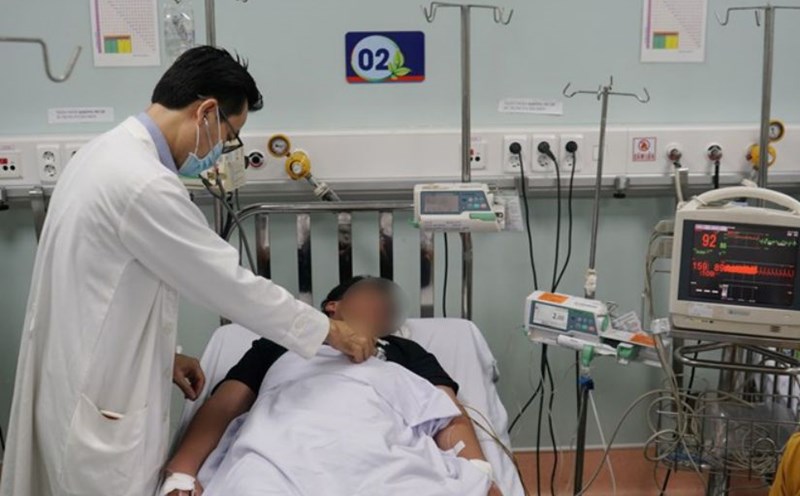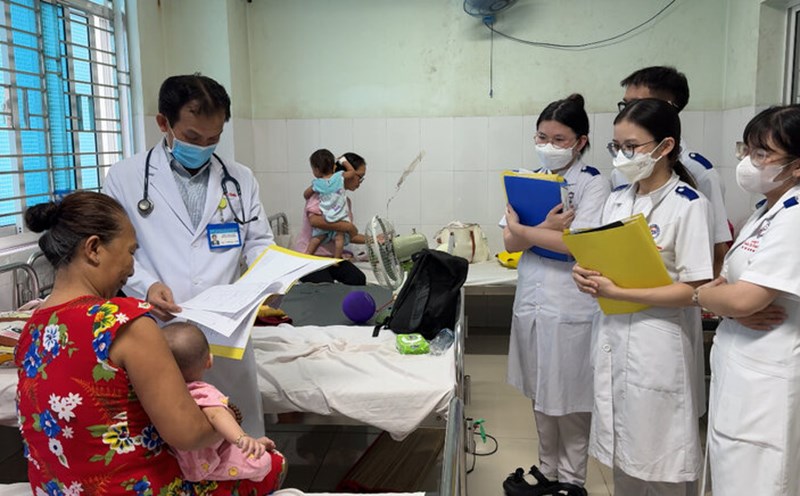According to the Vinh Long Center for Disease Control, since the beginning of the year, the whole province has recorded 6,818 cases of dengue fever, of which 123 cases were severe, accounting for 1.8% and one death.
The number of cases has increased by 2.55 times compared to the same period last year, showing that the epidemic situation continues to be complicated.
In Long Ho commune, Ms. Le Kim Thanh Thuy said that the area where she lives with a large population, surrounded by many objects stagnant in rainwater, creating conditions for Aedes mosquitoes to develop, most likely caused her son in grade 5 to have dengue fever.
"The family once intended to take the child to the Vinh Long Center for Disease Control for vaccination after reading the warning of an increase in the epidemic, but before the time was arranged, the child developed the disease," Ms. Thuy added.

At Vinh Long General Hospital, Dr. Tran Chi Cong - Head of the Department of Pediatrics - said that each day the department receives about 4-5 pediatric patients with dengue fever, most of whom are mild and respond well to treatment.
"On average, there are still 1-2 cases of severe progression that require IV fluids per week, requiring close monitoring and timely intervention to avoid complications," Dr. Cong added.
Talking to Lao Dong, Dr. Ho Thi Thu Hang - Director of Vinh Long Department of Health - said that the number of cases in the whole province has exceeded 6,800 cases, an increase of more than 2.5 times over the same period last year.
Currently, there are an average of 200 new cases recorded each week, of which 123 are severe cases and 1 death. Notably, the disease is not only concentrated in young children but has also increased the number of adults with the disease recently.
According to Ms. Hang, erratic weather, heavy rain and high tides create a favorable environment for barley mosquitoes to breed, increasing the risk of outbreak.

The health sector has strengthened case monitoring, handling outbreaks and advising people not to be subjective in disease prevention.
People need to actively kill mosquitoes, mosquito larvae, remove water containers around their homes and go to medical facilities when there is a continuous high fever or unusual sign to receive timely treatment.
"Although the number of dengue fever cases has increased and spread in many communes and wards, medical facilities in the area still ensure enough treatment drugs, supplies and hospital beds to receive and care for patients safely and promptly," Ms. Hang added.











